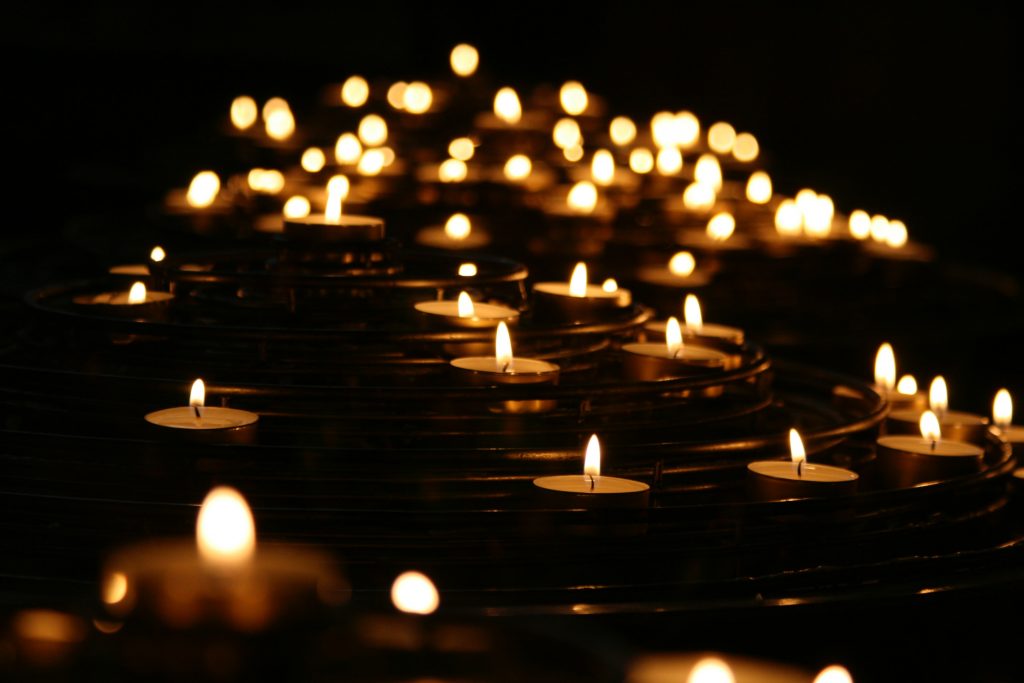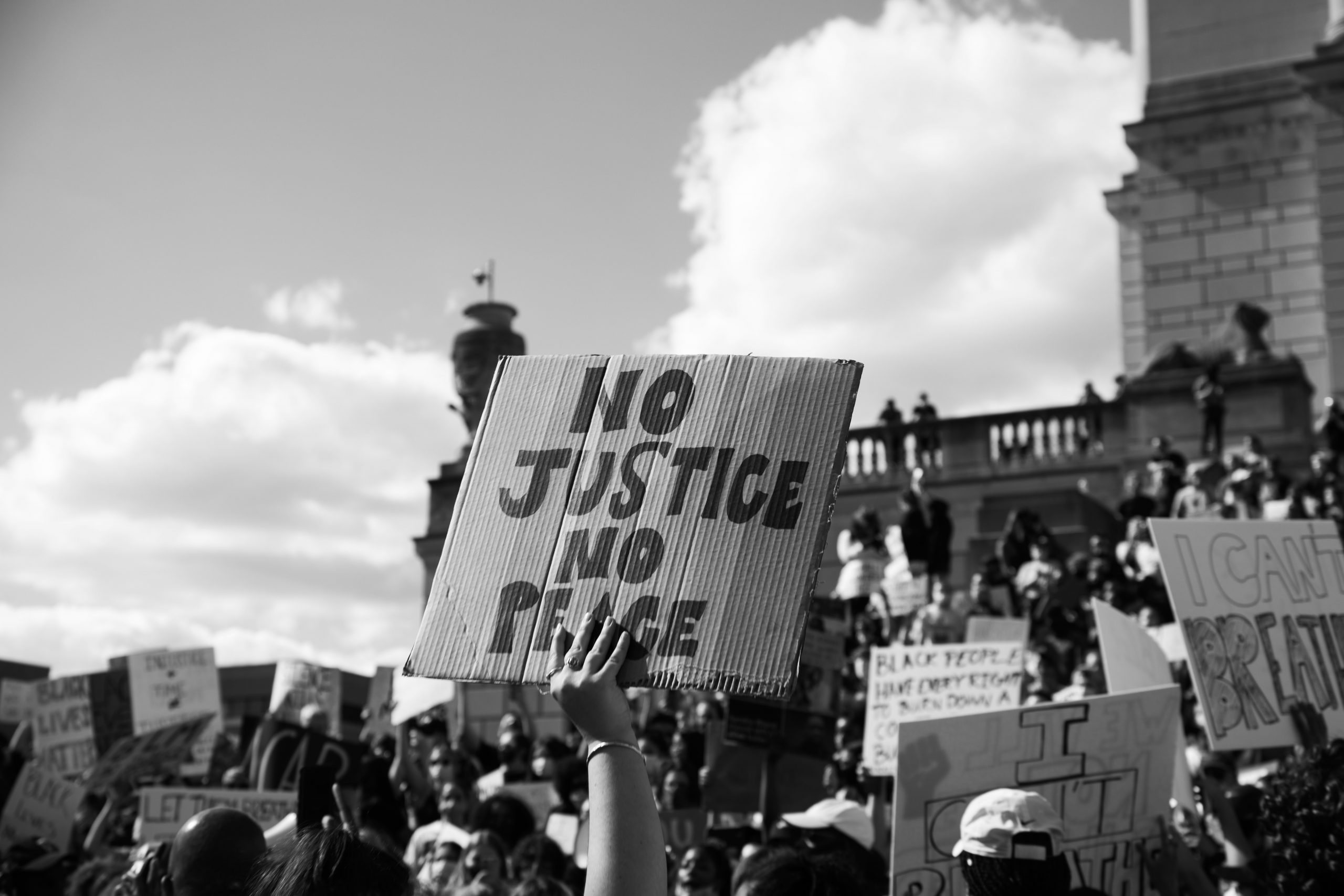As I write this article, the last few words of George Floyd as he cried out for his mother are still ringing through my ears. I can’t breathe. In my short few years on this Earth, I cannot recall any three words which has moved so many people from all corners of the globe into action. As of today, there have been protests across the 50 states in America and 18+ countries across the world. As we have witnessed a rallying cry for justice in the world, how should Christians respond in the face of injustice?
Christians Lament in the Face of Injustice
During the last few weeks, I have witnessed many Christian leaders in response to the events of the past month, who have been quick to raise theological and esoteric arguments as though that is the prescription the bleeding world needs to hear right now. Responses such as these are insensitive and proceed to diminish the experience of those who face racial injustice on a daily basis. The default posture of the believer is not to immediately teach and correct but instead, as Paul instructs us in Romans 12 to weep with those who are weeping. Christians grieve and lament. Jesus burst into tears when He was faced with the death of Lazarus (John 11). It is good and right for a Christian to grieve. As Tim Challies says, “We grieve genuinely and unapologetically”.
What separates Christianity from every other world religion is that we serve a God who knows what it’s like to feel. There is not a facet of life which anyone reading this article has experienced, which Jesus in His thirty-three short years on Earth did not Himself experience. If you feel abandoned? Jesus knows what that feels like. If you feel rejected? He experienced that also. If you face temptation? Jesus was tempted in every way. And if you face racial injustice? Jesus was subject to it. Jesus, being a Jewish minority, under Roman rule, faced the same ethical, racial, and social-economic tensions which we face today. Why is this good news? As the writer of Hebrews says, “For we do not have a high priest who is unable to sympathize with our weaknesses.” (Hebrews 4:15). The Jesus we run to is not a remote, distant deity. But rather He is active and has a unique understanding of our suffering (Hebrews 2:18). Because He understands, that is why we can come to Him with our weariness and heavy burdens and why He is able to give us rest (Matthew 11:28). When we see the injustices in the world, the response of the believer is not to haphazardly throw around scripture, but to lament, grieve and mourn with those who are affected.
“It must be right to grieve, not only with the people of God who are persecuted for our faith in Oman, Pakistan and North Korea but with all who suffer from other kinds of prejudice – whether apartheid in South Africa, Islamophobia in Myanmar, Anti-Semitism in politics or police brutality in Minneapolis. We must not harden our hearts toward the pain of those who grieve.”
– Richard Coekin

Christians Protest in the Face of Injustice
Christians can not remain apathetic in the face of injustice. It is not enough for Christians to simply be not racist, we must be anti-racist. Followers of Christ must challenge and aim to correct the divides which exist between different races, ethnicities, genders, and socioeconomic classes. The fight against injustice is not a secondary issue to the Gospel, it is a foundational one. Jesus, when gathered with the disciples in Matthew 25:31-36, taught that the way in which we treat those who are marginalised and oppressed serves as an indication as to whether we are truly followers of Him. If you claim to love God and love His people, you would not only hate injustice against God but injustice against His people.
Because if you love what is good you will hate what is evil. If the Gospel you preach doesn’t result in you to fighting against the racial injustices we see in the world, then you have a truncated gospel.
Christians cannot remain indifferent when it comes to the issue of fighting injustice. Proverbs 31:9 instructs believers to “speak up, judge righteously; defend the rights of the poor and needy”. When Pharaoh, refused to let the Israelites go free, Moses protested against Pharoah to “Let my people go” (Exodus 9:1). Jesus, protested against the Pharisees when they wanted to unjustly stone the adulterous woman to death (John 8:1-11). When faced with injustice, Christians protest. Now, how this looks like on an individual basis would vary. Some Christians might go out on the streets and protest, some may sign petitions, some Christians may protest by giving money to the relevant organisations which fight against injustice. However, remaining silent is not an option for the believer. We are called to be the voice for the voiceless. Paul instructs us, when we see evil, to expose evil and where we see injustice, expose injustice (Ephesians 5:11). The one thing Christians cannot do is to look away.

Christians should protest, however, we protest distinctly to the world. In instances where a Christian might protest on the streets, we are to do so peacefully. We stand up as believers against injustice knowing its not our place to carry out vengeance or God’s wrath. We do not and must not carry out vengeance for vengeance is for the Lord- Deuteronomy 32:35, Romans 12:19, Hebrew 10:30. The hallmark of a believer when fighting injustice is that a believer knows who gets the final say. God.
Christians Pray in the Face of Injustice
When faced with injustice, the Christian response is not merely to bend our knee in protest but to also do so in prayer. The battle against the injustices of the world is not fought solely by creating and signing petitions here on Earth but also making prayers of petition to Heaven.
For though we walk in the flesh, we do not war according to the flesh. For the weapons of our warfare are not carnal but mighty in God for pulling down strongholds.
– 2 Corinthians 10:3-4
In times such as these, prayer almost seems pointless. When faced with injustice, it is easy to believe that social activism is the most effective approach. However, the most powerful tool a Christian has in his or her arsenal is prayer. We pray to the God who can bring about eternal change. We pray for God’s justice to be carried out. We pray for those who have been victims of racial injustice, we pray for God’s comfort, peace and healing over their lives. We pray for those in positions of power, we pray that they shall act justly and courageously. We also pray for those who oppress, we pray that they shall repent and come to know the love and mercy of God! And as we pray, we know God is able, and the Gospel of Jesus Christ can change lives, including the lives of those who are racist. We pray and live with the hope that the Lord Jesus would help all Christians to preach, obey, and apply a sufficient Gospel to this present evil age!